From then to now: Recounting the history of student activism on campus
In light of the campus demonstrations following recent developments in the Israel-Hamas war, past events of civil unrest serve to remind us of the long-standing Brandeis tradition of demanding change through student organization.
Our University was founded on the values of truth and justice, but within its only 75 years of existence it was the students who accrued its national credit and regard as a social justice institution. Brandeis has a rich history of campus activism; its students’ effort and persistence in demanding change has refined its programs, administration, and overall operation as a democratic society. In the name of preserving this tradition, we remember how our predecessors called for direct action in the Vietnam moratorium protests, the first occupation of Ford Hall, the Pearlman takeover, and Ford Hall 2015.
Vietnam moratorium
In the mid-1960s, students from the Graduate School of Arts and Sciences organized to protest the Vietnam war draft, in addition to leading students and faculty in a strike against atmospheric nuclear testing. During the 1965-66 school year, Director of the Selective Service Lt. Gen. Louis Hershey publicized plans to consider male college students’ academic records in drafting criteria, announcing that students with lower grades could lose their education deferment. The following school year, the Brandeis community fasted in a nationwide statement of resistance to the war. In the spring of 1967, President Johnson spoke on plans to forgo education draft deferments entirely, giving students a new, more personal stake in the war.
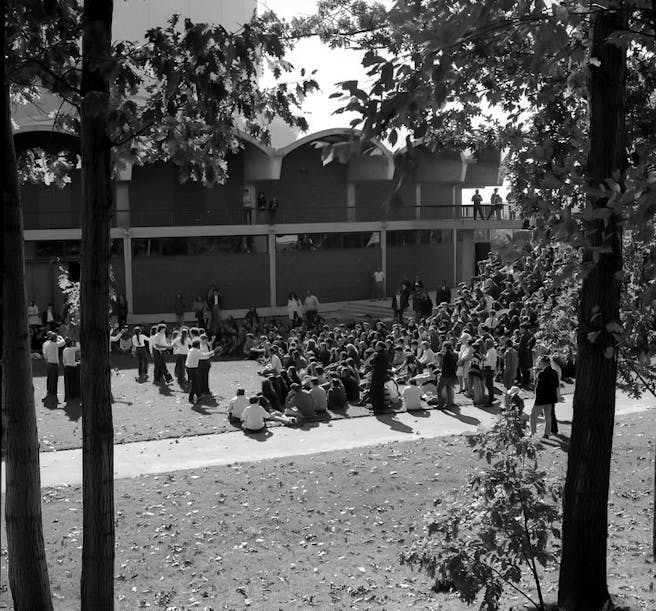
Ford Hall 1969
From Jan. 8-18, approximately 70 African American students conducted an 11-day occupation of Ford and Sydeman Halls and made a list of ten demands for the administration, which aimed to achieve more representation on campus. The occupation ended with the participants’ main demand for the establishment of an African and Afro-American studies department.
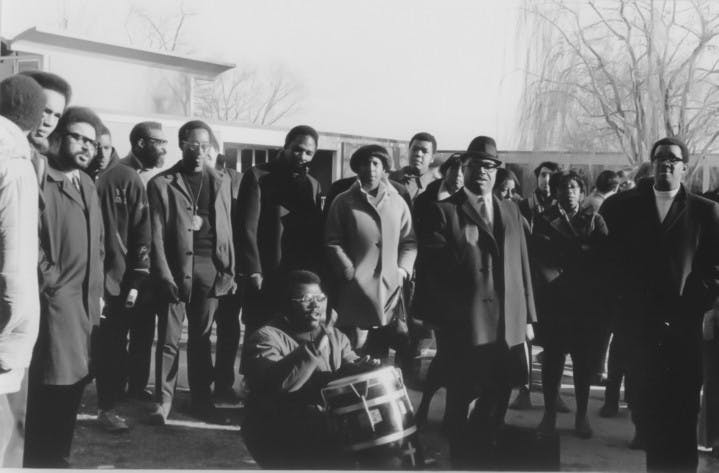
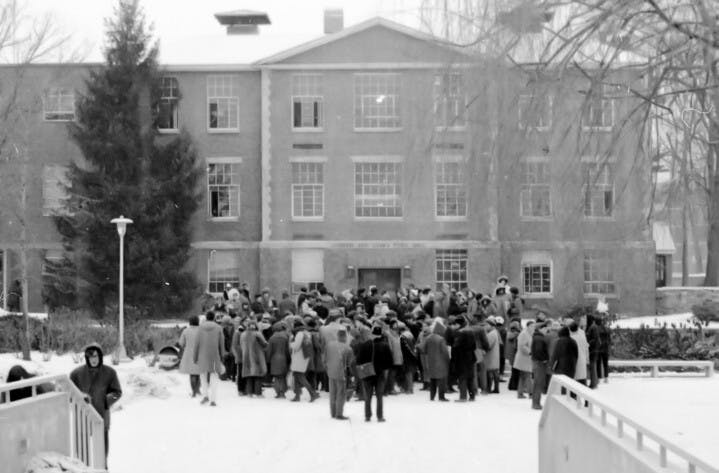
The Pearlman takeover and events leading up to it
In the 70s, several student organizations stood in solidarity with one another in their activist efforts; these include: Brandeis Asian American Students Association, Grito, the organization of Puerto Rican and Mexican American students, and the Afro-American Organization. In February 1972, the BAASA, Grito, and Afro led a protest against the scholarship cuts allocated to minority students, and the three groups later formed the Third World Coalition. The demands of the TWC regarding financial aid were not met until years later when the Student Action Group occupied Pearlman Hall on Apr. 29, 1975. Following negotiations with the administration, concessions were made in commitment to minority students’ rights.
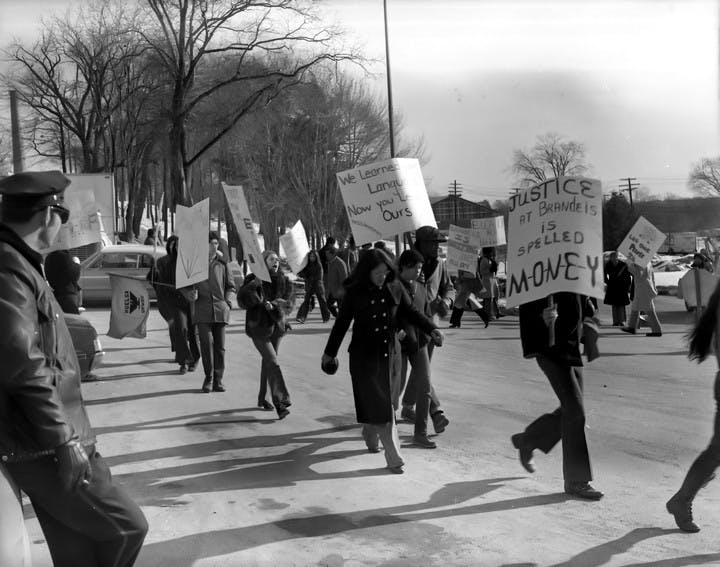
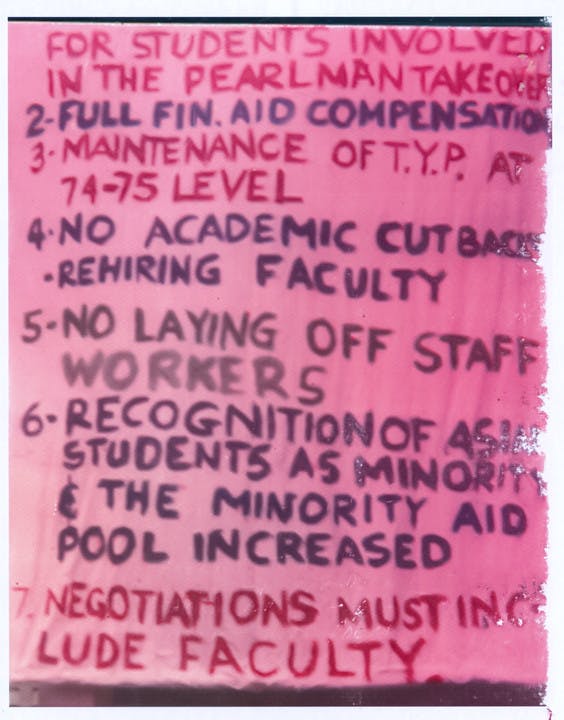
Ford Hall 2015
Ford Hall 2015, which referenced the 1969 Ford Hall sit-in, encompassed a 13-day sit-in at the Bernstein-Marcus Administrative Center. Largely led by Black and other students of color, participants called for racial equity on campus with a list of 13 demands. Negotiations resulted in the hiring of more minority faculty members, including a vice president for Diversity, Equity and Inclusion, along with other changes.
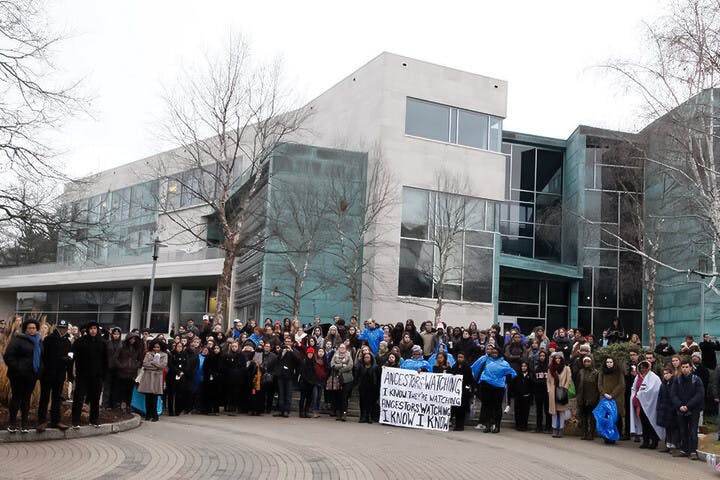
Recent demonstrations
Today’s generation of Brandeisians reflect the oppositional spirit of those who came before them. As tensions arise in the Brandeis community following the Oct. 7 Hamas attacks on Israel and subsequent developments in the war and on campus, various student groups have organized and held events protesting the University’s stance on the war, as well as its authoritative decisions surrounding the demonstrations.
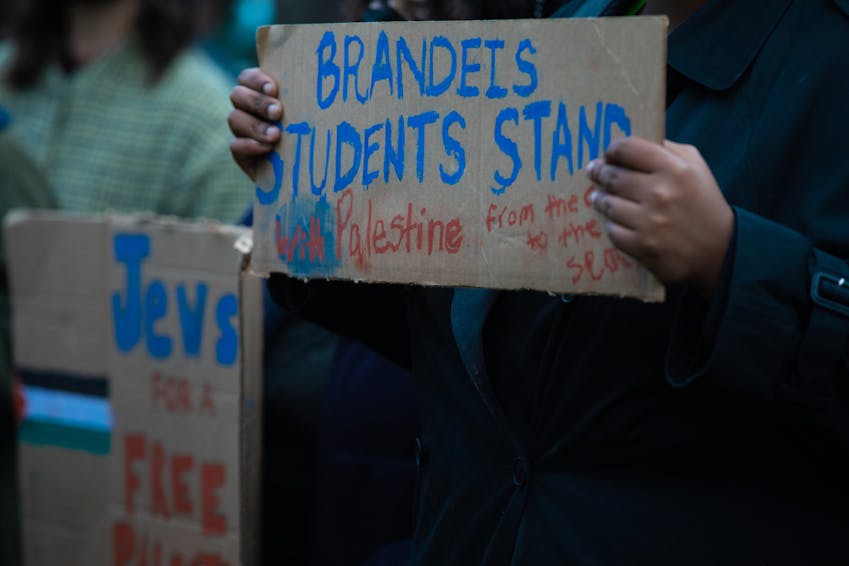
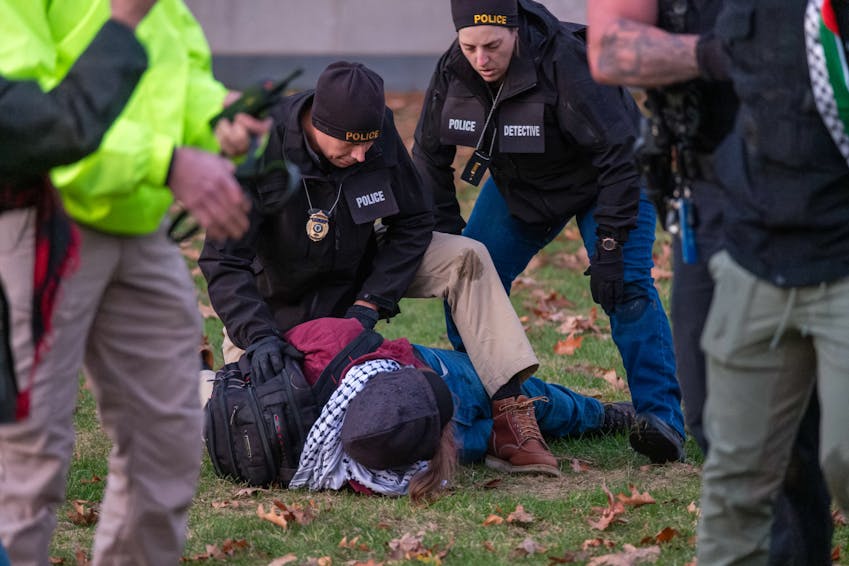

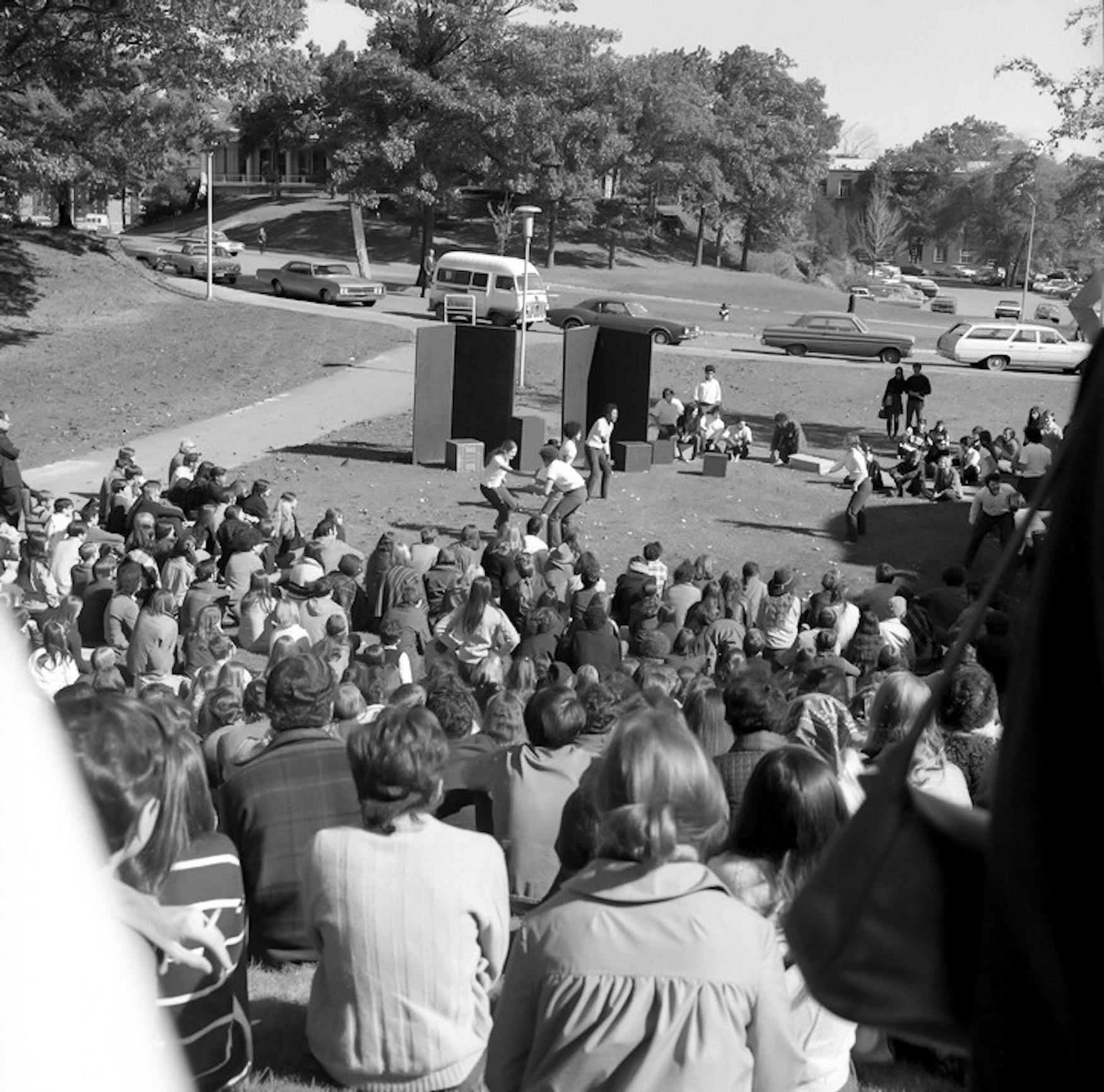

Please note All comments are eligible for publication in The Justice.